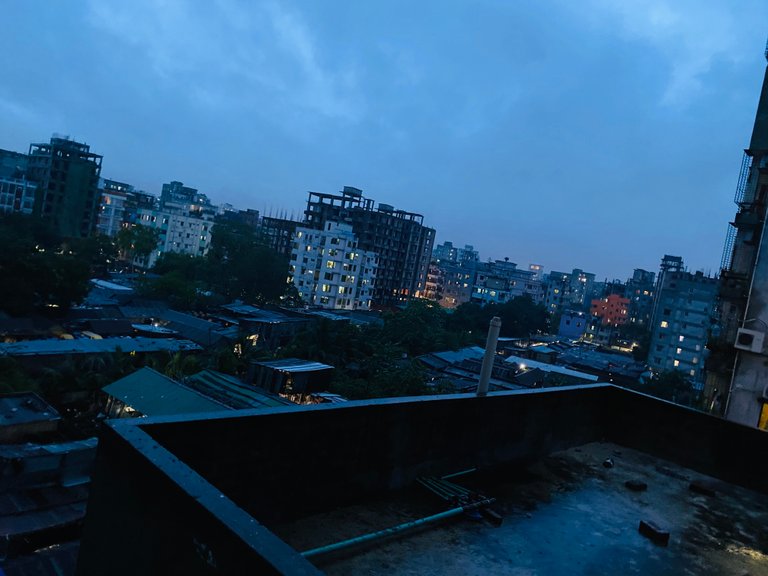A whole day’s rain might seem poetic from a distance the rhythmic tapping on tin roofs, the scent of wet earth, the somber grey skies. But for countless people living in urban sprawls, especially those in underdeveloped or informal settlements, a day like this is more a curse than calm.

The image, dark, soaked rooftops, dim lights flickering through mist and drizzle captures not serenity but struggle.
When rain begins at dawn and refuses to relent, the city doesn’t gently slow down it begins to fray at its edges. Roads dissolve into brown rivers. Rickshaws stall. Buses become overloaded arks, inching through flooded intersections. People, drenched to their bones, wade knee-deep through water, shoes in hand, bags hoisted over heads. Children, who should be in school, often stay back not for the joy of rain but because it’s simply not safe to step outside.
In the lower income neighborhoods, where tin roofs leak and drains are choked, the rain doesn’t fall on homes it enters them. Water seeps through walls, fills up floors, spoils food, soaks mattresses. The idea of comfort disappears. For many, the smell of damp clothes and the sting of mosquitoes replace the freshness most associate with rain.
Shadows in the Storm
Shopkeepers lose business. Daily wage earners construction workers, street vendors, delivery riders lose their livelihood for the day, and often the next. The rain may end by nightfall, but the consequences don’t. There’s an eerie helplessness in the image of those dim-lit buildings behind each window, someone waits: for the water to drain, for work to resume, for normalcy to return.
Power cuts are frequent. Connectivity drops. Emergency services slow down. A sick child or elderly person becomes even more vulnerable when the roads are impassable. The city becomes a puzzle of puddles and chaos.
The Weight of Wet Skies
This isn’t just weather it’s infrastructure failure made visible. Poor drainage, bad planning, rapid unregulated construction all these collide when the clouds open up. And in the end, it’s always the general public who pays the price. With time, with energy, with dignity.
Rain, in this context, doesn’t cleanse. It burdens. And until systems change until cities are built for everyone a rainy day will continue to mean struggle for the many, while the few watch it from behind glass.
Thanks for visiting my blog.